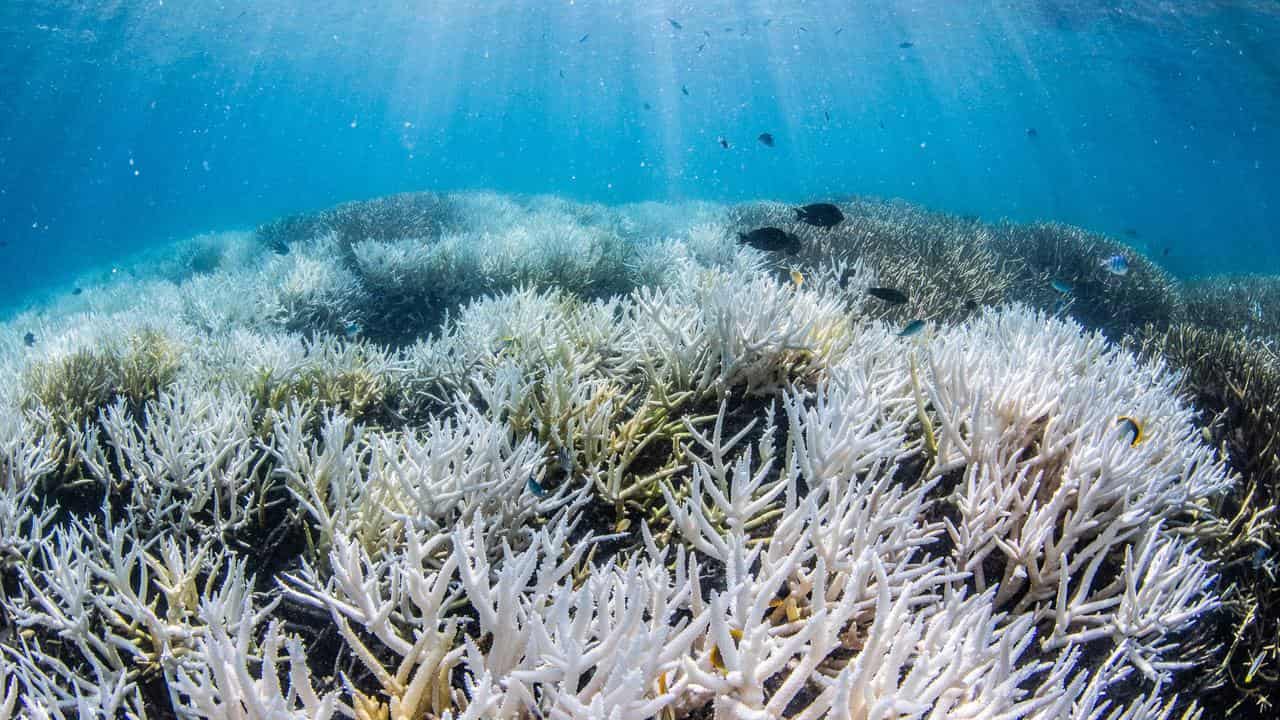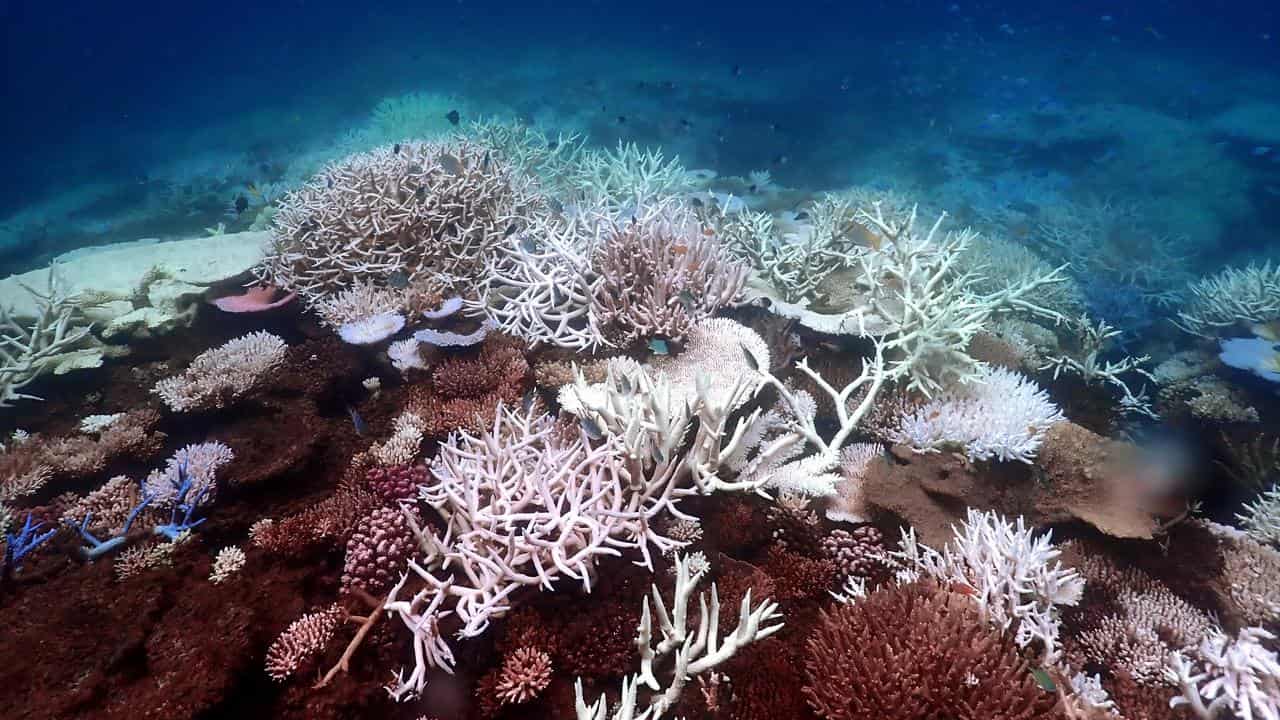
Scientists fear time is running out to protect the Great Barrier Reef, which is enduring one of its most extensive coral bleaching events.
The full extent of the impact is still unknown despite a "gutwrenching" update on Wednesday which revealed almost three-quarters of the reef has been affected.
The reef has suffered the worst summer on record after being hit by two tropical cyclones and severe flooding plus an outbreak of coral-munching crown-of-thorns starfish.

This has culminated in one of the reef's most widespread and severe mass coral bleaching events on record.
The 2023/24 summer update was released by the Great Barrier Reef Marine Park Authority, the Australian Institute of Marine Science and the CSIRO.
It gives insight into the reef's fifth mass bleaching in eight years due to heat stress driven by climate change.
James Cook University's Professor Terry Hughes said the shortening gap between bleaching events was a major concern, casting doubt over any subsequent full recovery.
"We've already seen back-to-back bleaching events in two consecutive years in 2016-17 and the last three events, including this one, have only been two years apart," he told AAP.
"That's nowhere near enough for a full recovery or anything like it."
University of Queensland's Selina Ward said the clock was ticking to take climate change action and protect the reef.
"We have less time ... to make the changes," Dr Ward told AAP.
"We really have to get serious ... we're certainly running out of time."

According to the update, aerial surveys found 73 per cent of the 1080 reefs monitored had suffered bleaching in the latest event.
Bleaching was "very high" or "extreme" in 39 per cent of the reefs, with the highest levels across the southern region as well as parts of the remaining central and northern areas.
"It's a very severe and unfortunate bleaching event (after) some of the longest spells of hot water we've ever had on the Great Barrier Reef," Dr Ward said.
"It's gut-wrenching really ... it's widespread and there's really high levels of extreme bleaching, more so than usual."
Extreme bleaching is recorded when more than 90 per cent of a reef’s coral cover is affected.
A very high level is given when more than 60 per cent is bleached.
A bleaching event's severity is ranked on a scale of category one to five.
But the latest event won't be rated until the full extent of this summer's record water temperatures is known, with scientists set to monitor the impact over the next 12 months.

It comes after a fourth global mass coral bleaching event was declared this week, affecting 53 nations.
Bleaching is not always fatal but corals are likely to die if temperatures remain higher than normal for too long.
"Some of (the coral) will regain their colour over the next few months but they won't all make it given the severity of bleaching this year," Prof Hughes said.
WWF Australia has called on the Labor government to commit to a federal emissions reduction target of at least 90 per cent below 2005 levels by 2035 and phase out fossil fuels.
"The Great Barrier Reef has become one of the most frequently bleached reef systems in the world," a spokesman said.
"The Caribbean has lost 80 per cent of its coral cover - is that the future we want for our national treasure?"









